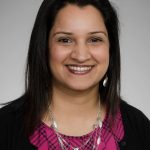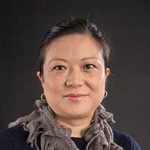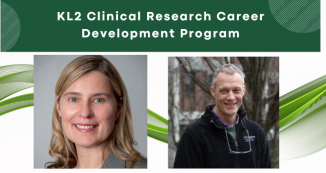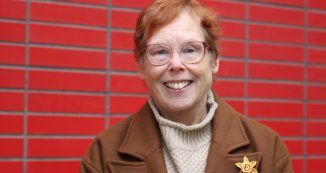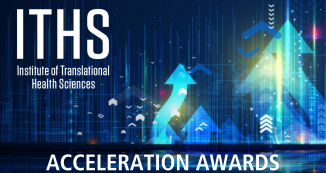
25 Oct ITHS Community Engagement Helps Researcher Succeed
Every day, ITHS faculty and staff work diligently to help investigators transform their research ideas into concrete study plans that have a greater chance to succeed. Not every study sees the light, but when they do, it is a remarkable feeling for all of those involved.
This is the story of one of those successful collaborations with the ITHS, when an investigator we helped gets their first large study funding.
During the fall of 2019, Dr. Rashmi Sharma, an Assistant Professor of General Internal Medicine at the University of Washington and an early-career investigator, reached out to Dr. Linda Ko, ITHS Community Engagement (CE) Co-Director. Dr. Sharma had an idea for a community study she wanted to pursue for an R01 proposal, but she needed help in shaping it.
An NIH R01 grant is “the original and historically oldest grant mechanism used by NIH. The R01 provides support for health-related research and development based on the mission of the NIH. R01s can be investigator-initiated or can be solicited via a Request for Applications.” Funding for this grant category is extremely competitive: while NIH funds approximately 20% of grant applications, only 10% of R01 grants are funded. Grants are typically for 3-5 years and can be renewed. As an early-career investigator, getting an R01 grant is a big deal. It can be a life-changing accomplishment because of the large amount of funding, and the potential for sustaining vital research.
“ITHS CE is highly committed to supporting early-career investigators who will continue to demonstrate respect for the voices of the community, ultimately changing the landscape of how research is done,” shared Dr. Ko.
ITHS CE is highly committed to supporting early-career investigators who will continue to demonstrate respect for the voices of the community, ultimately changing the landscape of how research is done
“When I heard Dr. Sharma discuss her work, I knew that she had three elements that I consider essential in a community-engaged researcher: 1) commitment to the community, 2) authenticity in her approach to bidirectional community partnership, and 3) recognition of community members as wisdom keepers,” Dr. Ko said.
“Growing up in the U.S. as the child of Indian immigrants, I am aware of the important ways in which one’s cultural background can positively influence one’s lived experience as well as the challenges that come with being seen as an ‘other,’” Dr. Sharma said. “As a result, I’ve felt a strong connection with the patients I’ve cared for who come from immigrant backgrounds, and watching them experience healthcare inequities has been disheartening. For patients with serious illness and their loved ones, who are already facing an extremely stressful and difficult situation, having to navigate additional cultural and/or language barriers can be especially hard. So the impetus for my research in general and this study specifically is to try and figure out how to help these patients and their families in a culturally- and linguistically-appropriate way.”
Dr. Sharma’s study involves collaboration with communities whose members may have limited-English proficiency (LEP). The project aims to understand patient, caregiver, and community resource needs to support older adults with dementia.
“We know that patients with serious illness who have LEP are at high risk of receiving poorer quality care. Palliative care (i.e., specialized medical care for persons with serious illness that focuses on enhancing quality of life) could help address these inequities in care by helping patients get care that matches their values and goals and by decreasing psychological distress for patients and families. Unfortunately, palliative care is often not used by patients with LEP, and there is a need to understand the barriers to palliative care for this population,” Dr. Sharma told us.
How CE helped Dr. Sharma with her R01 grant application
There were a number of resources and tools that ITHS CE shared with Dr. Sharma, including:
- Provide consultation and examples of how to describe community engagement in a grant application including creation and function of a community advisory board (CAB) and procedures on how to engage the CAB throughout the research process.
- Provide consultation and examples of how to describe and implement mixed methods in community-engaged research
- Provide consultation and examples of multi-level conceptual framework for community-engaged research
- Provide consultation and examples of implementation science
- A template of a letter of support from community-based organizations
- A template of a job description for hiring a community-engaged research coordinator
CE also helped secure letters of support from community-based organizations participating in the ITHS Community Health Network including from one of the largest agencies that serves the Latinx community in South King County.
“A key aspect of this proposal, which I did not have experience with, was utilizing community-engaged research principles in practice. CE provided me with theoretical and practical guidance regarding how to integrate these principles into the research approach (e.g., sampling approaches for the qualitative aims, role of a community advisory board), identify partners within the Latinx community, and obtain a letter of support from Community Based Organizations.
“In addition, CE helped me strengthen the multi-level conceptual framework in the grant application and incorporate implementation science approaches in the analytic plan. Notably, several of these contributions were highlighted as strengths by the grant reviewers. Also, Dr. Ko is a co-investigator on the grant; it is extremely helpful to have someone with so much expertise with community-engaged research as a part of the study team,” Dr. Sharma told us about her experience working with ITHS CE.
CE helped me strengthen the multi-level conceptual framework in the grant application and incorporate implementation science approaches in the analytic plan.
The Study
Dr. Sharma’s study is titled Understanding and Improving Inequities in Palliative Care for Older Adults with Advanced Dementia and Limited-English Proficiency: A Mixed-Methods Evaluation.
This study uses mixed methods to identify barriers to palliative care, across multiple levels (i.e., patient/family, clinical encounter, healthcare system, community level), for older adults with dementia who have LEP and their family members. “We’re focusing on three diverse LEP communities — Latinx, Chinese, and Vietnamese — and the data will help us to understand barriers that are common to these communities, and those that may be unique to a particular community. We also chose to focus on older adults with dementia as there are some additional healthcare challenges for this population related to the cognitive and functional declines that happen over time,” shared Dr. Sharma.
The Outcomes
In August 2021, Dr. Sharma received a 5-year R01 grant awarded by the National Institute on Aging of $3M. “It was a very exciting moment for me as obtaining a grant of this size, as a Principal Investigator, was crucial to be able to continue doing research as a Physician Scientist, and it involves a patient population that I care deeply about.”
With the support from ITHS CE, Dr. Sharma also submitted a 5-year grant application with a focus on cancer to the American Cancer Society. A few weeks ago, Dr. Sharma received news that this project, titled Care Inequities in Advanced Cancer and Limited English Proficiency, will be funded. This study will begin in January 2022 and will focus on Latinx, Southeast Asian, and East African adults with advanced cancer and LEP. Dr. Ko is also a co-investigator for this study.
The CE program was ecstatic to hear the news that not one grant, but two grants were funded for Dr. Sharma’s work. Dr. Ko said, “The research that Dr. Sharma proposes will ensure that community voices are integrated throughout the research process ensuring that her science is not only robust, but also relevant to the community.”
The research that Dr. Sharma proposes will ensure that community voices are integrated throughout the research process ensuring that her science is not only robust, but also relevant to the community
CE is an incredible resource for investigators who are working on a research proposal or designing a study that can benefit from using a community-engaged approach. “I found their expertise to be invaluable across so many aspects of the research process: designing the research plan, identifying community partners, writing the grant, and navigating the practical aspects of actually doing the study,” Dr. Sharma said. “It’s one thing to talk about community engagement in research, it’s another to actually engage communities as partners in research, and I so appreciate the way the CE program fosters the latter!”




